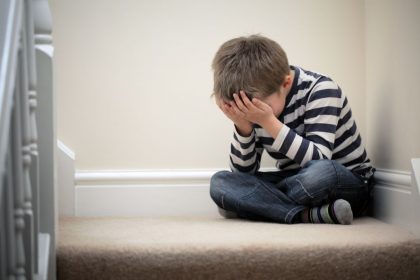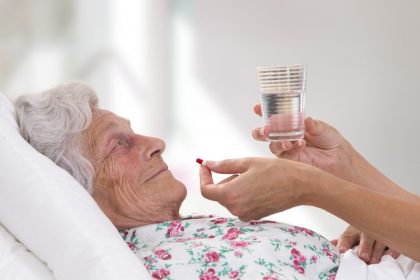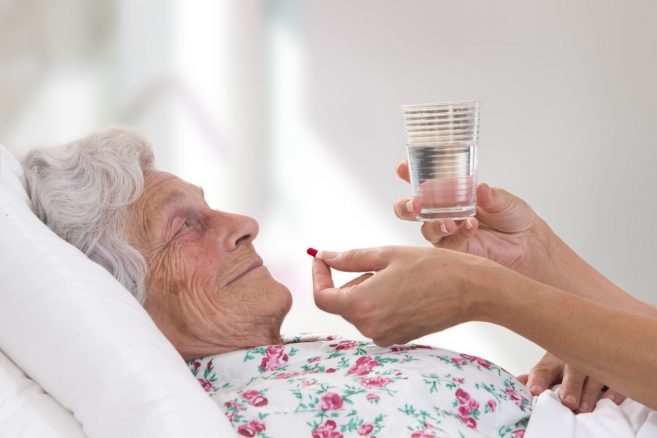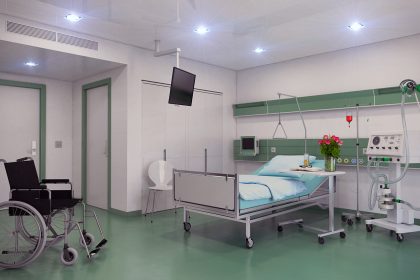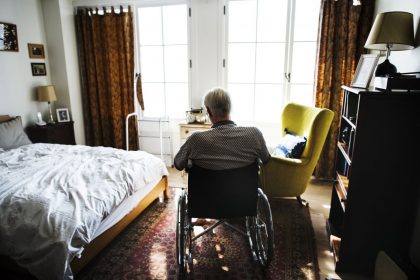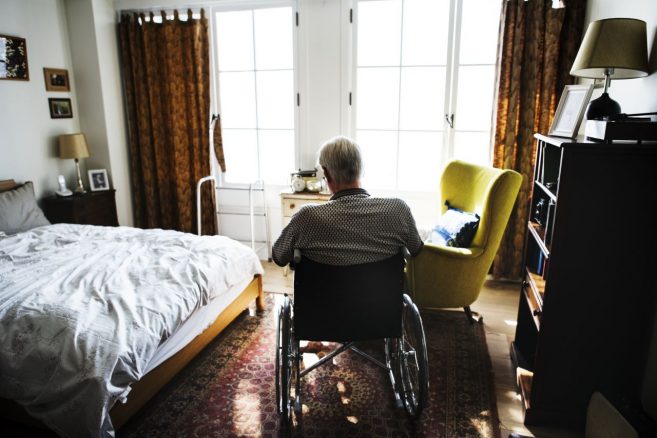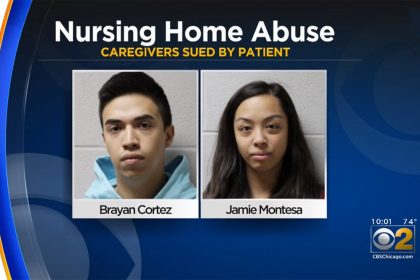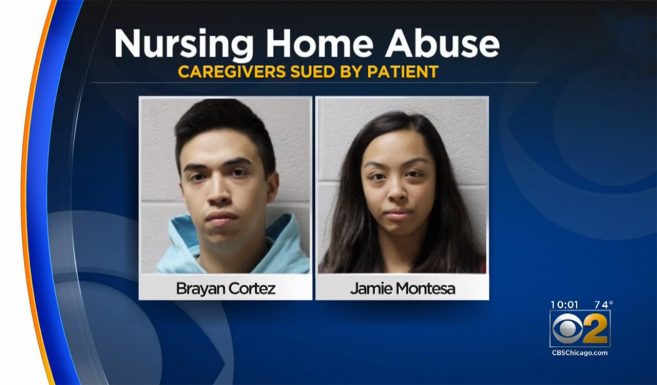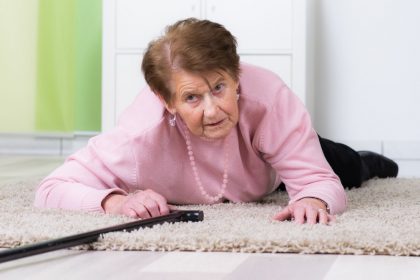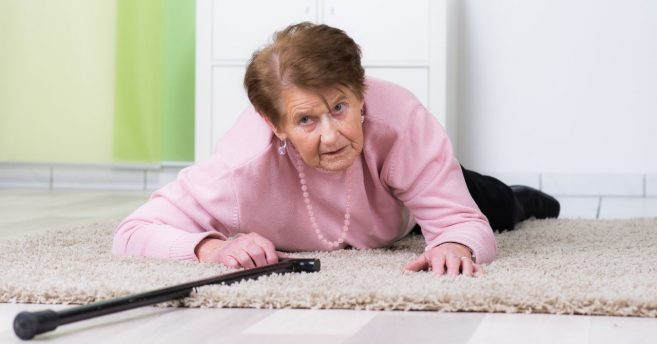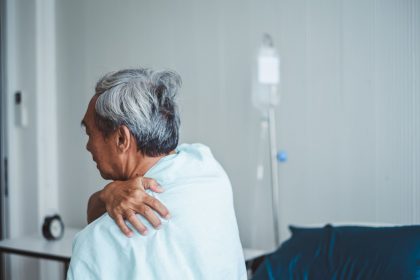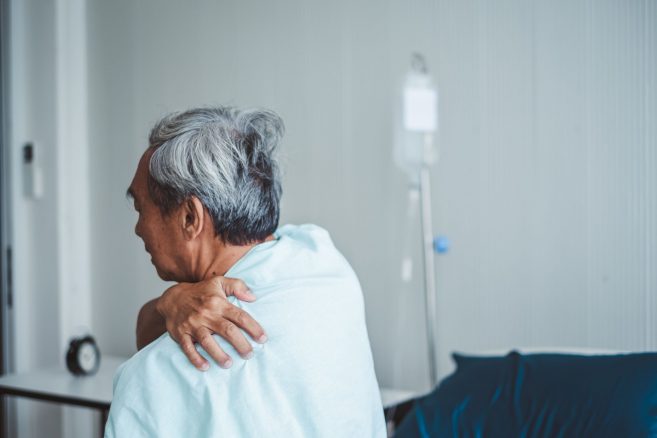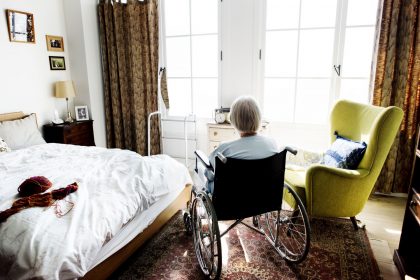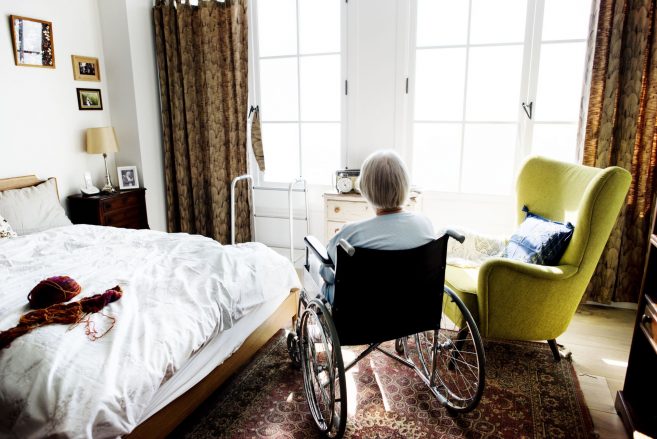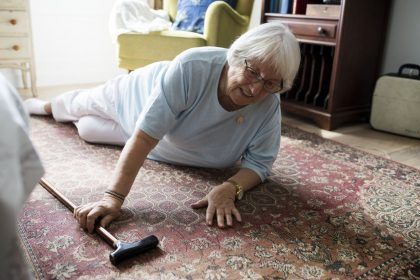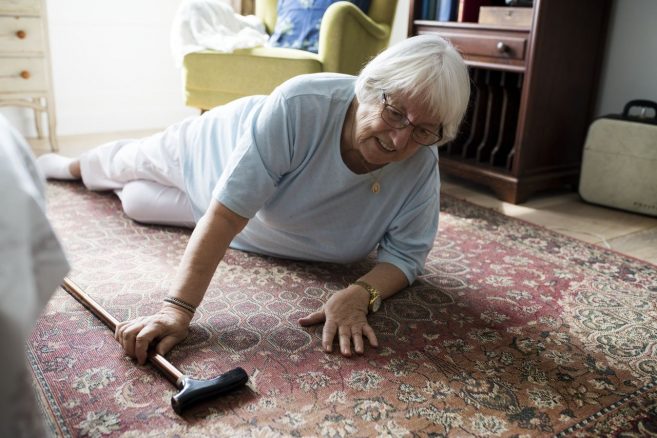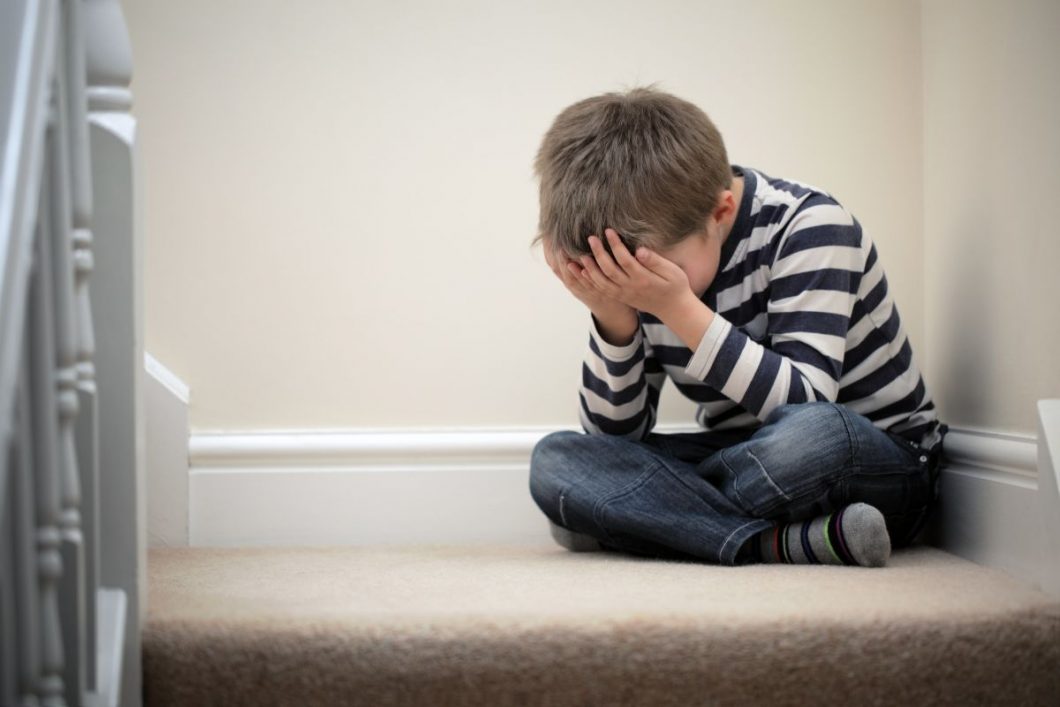 On January 28, 2019, the New York State legislature passed the Child Victims Act, allowing child sex abuse survivors to sue abusers and the institutions that protected the abusers until the survivor reaches 55 years of age. The new law also opened a “look back” window of one year for anyone who was sexually violated or abused to bring a lawsuit no matter how long ago the abuse occurred.
“This means if you were sexually abused as a minor, you are free to file a civil lawsuit against an individual or institution right now,” said John Dalli, a partner in the law firm Dalli & Marino LLP. “Survivors can’t turn back the clock on what happened. But they can now force abusers to answer for what they did and help bring closure for themselves.”
On January 28, 2019, the New York State legislature passed the Child Victims Act, allowing child sex abuse survivors to sue abusers and the institutions that protected the abusers until the survivor reaches 55 years of age. The new law also opened a “look back” window of one year for anyone who was sexually violated or abused to bring a lawsuit no matter how long ago the abuse occurred.
“This means if you were sexually abused as a minor, you are free to file a civil lawsuit against an individual or institution right now,” said John Dalli, a partner in the law firm Dalli & Marino LLP. “Survivors can’t turn back the clock on what happened. But they can now force abusers to answer for what they did and help bring closure for themselves.”
Sexual Abuse More Prevalent Than You Think
It’s a difficult topic, but survivors should know they aren’t alone. Darkness To Light, a non-profit organization focused on preventing child sexual abuse, estimates that 1 in 10 children will be sexually abused by age 18. The state has prepared for an influx of lawsuits to be filed, designating 45 judges across the state solely to help expedite these cases. For example, 600 lawsuits in New York State were filed on August 14, the first day of this year-long window — 175 in New York City alone. Those initial large numbers indicate how prevalent this type of abuse has been. Sadly, Darkness To Light reports that an estimated 60% of child sexual abuse victims never tell anyone. “Anywhere there’s a disparity in power, abusers leverage their own higher position to take advantage of someone,” said Dalli. “This legislation now makes it easier to hold people accountable for victimizing you no matter how long ago it took place.”How To Bring Justice To Sexual Abusers
If you are a survivor of sexual abuse, call the law firm of Dalli & Marino for a free, confidential case evaluation. Our attorneys have extensive experience fighting on behalf of those who have been subject to abuse. You can contact us by phone at 1-888-465-8790 [Toll-Free] or complete the CASE EVALUATION FORM on our Contact Page.Contact Dalli & Marino
Our mission since 1995 has been to fight for those who can’t fight for themselves. We’ve seen how institutions such as schools, hospitals and nursing facilities have used their power to avoid their responsibilities. We know how to hold these institutions accountable for ignoring these crimes and prioritizing their reputations above children’s safety. Our team serves Suffolk and Nassau Counties (Long Island), Manhattan, Brooklyn, the Bronx, Queens, Staten Island and Westchester County. Read MoreMany Nursing Homes Abuse Antipsychotic Drugs As “Chemical Restraints”
Each week, 179,000 nursing home residents are given antipsychotic drugs for conditions that the medications were not approved for, according to the Human Rights Watch. Unfortunately many nursing homes use antipsychotics to help handle patients considered difficult because of dementia or Alzheimer’s. But federal law prohibits the use of such drugs as “chemical restraints” to help manage these types of patients.
FDA Warnings
Even more alarming, the FDA has given these drugs a “black box warning,” advising that people with dementia who took these medications were at increased risk of heart failure, stroke, infection, and death.
Improper Uses of Antipsychotic Medication
“Nursing homes should not administer antipsychotics without a documented medical need or as a substitute for good, individualized care. It’s illegal,” says John Dalli, a partner in the law firm Dalli & Marino, LLP.
Antipsychotic medications like Abilify and Seroquel treat mental disorders such as schizophrenia, paranoia, hallucinations and the mania associated with bipolar disorder. Known as “major tranquilizers,” they calm and suppress certain mood-controlling chemicals in the brain like dopamine.
But besides increasing health risks if misused, antipsychotics can negatively impact your loved one’s interaction with the world. The National Consumer Voice, a nursing home resident advocacy group, describes the common side effects as:
- Sedated to the point where they become listless and unresponsive
- Slumped in wheelchairs or unable to get up from bed
- No longer able to participate in activities they enjoy, or even talk with their families
Administering antipsychotics also significantly increases the risk of falls in elderly patients, which is already the number one cause of injury in adults over 65.
What to Do If You See Violations
“It’s important to immediately address any abrupt changes you see in your parent or loved one’s cognitive ability, mood or behavior,” said Dalli. “Ask to see their records. Talk to their nurses and physicians. Get answers before it escalates into a medical crisis.”
Nursing homes are violating federal law if they are giving antipsychotics to a loved one without a doctor’s order, medical necessity, or the patient’s informed consent. In addition to compensation for medical conditions caused by antipsychotics, you or your loved one may file a lawsuit claiming damage for the emotional pain and suffering associated with the medication’s effect.
To explore your options for litigation, contact the law firm of Dalli & Marino today at 1-888-465-8790 [Toll-Free] or complete the CASE EVALUATION FORM on our Contact Page.
Contact Dalli & Marino
Since 1999, Dalli & Marino has helped families recover millions of dollars in cases of the illegal use, or over-prescription, of antipsychotic drugs by nursing home and other care facility staff to sedate elderly residents. Our team serves Suffolk and Nassau Counties (Long Island), Manhattan, Brooklyn, the Bronx, Queens, Staten Island and Westchester County.
Read MoreNursing homes must ensure that residents are receiving quality care and are protected from harm at all times. However, too many nursing homes fail to comply with the federal standards of care. For example, federal studies and data, as well as our own reports over the years, have indicated that most nursing homes do not have the levels of staffing necessary to meet the needs of typical nursing home residents, and that recurring health violations are common. In fact, the average U.S. nursing home has seven (7) violations of minimum health standards every year. Unfortunately, residents are at a greater risk of experiencing harm when such violations occur.
To help individuals and their families make good choices about nursing home care, the federal Centers for Medicare & Medicaid Services (CMS) rates nursing homes on a scale of one to five (one being the lowest, five the highest). While ratings are not always useful in identifying “good” nursing homes – many abuse and neglect deficiencies go undetected in facilities of all ratings – the existence of a low rating indicates that serious issues have been identified.
Sadly, too many nursing homes have been found to have persistent, serious problems. To help address this, CMS developed the Special Focus Facility (SFF) Program, in which facilities with an extremely poor record of resident safety and care are identified for intensified oversight and enforcement. The goal of the SFF Program is to ensure that these facilities develop and implement practices and protocols for lasting improvement within about two years or, if they are unable to do so, are terminated from participation in the Medicare/Medicaid programs. Unfortunately, the SFF Program is extremely limited: to just 88 facilities in the country (with only three in NY). Since not all facilities that qualify among the most poorly performing can be selected for the SFF Program, we recommend considering any facility with a one-star rating on Nursing Home Compare to be among the most poorly performing in the state.
The purpose of this alert is to provide the public with information on nursing homes in New York that show evidence of extremely poor performance in caring for their residents as determined by three factors: (1) Being a Special Focus Facility, (2) Being a Special Focus Facility candidate; and/or (3) Having one-star in the federal Five-Star Quality Rating System. SFF candidates are facilities that are, essentially, in the pool for possible selection as an SFF when a current SFF graduates or is terminated. The lists include the names and locations of these nursing homes.
CLICK HERE TO VIEW THE LISTS ON OUR WEBSITE, WWW.NURSINGHOME411.ORG.
Long Term Care Community Coalition
www.nursinghome411.org
One Penn Plaza, Suite 6252
New York, NY 10119
United States
August 21, 2019 – Approximately half of all seniors will need nursing home care at some point. Despite this significant need, and the vulnerability of most nursing home residents, serious problems are widespread and persistent, including inadequate staffing, substandard care, abuse, and neglect.
To help the public gain insights into the quality and safety of facilities in their communities, LTCCC regularly publishes data on key indicators relevant to nursing home care. Today, we are publishing the latest data on nursing homes that have received a one-star overall rating on Nursing Home Compare. One-star is the lowest possible rating in the federal Five-Star rating system, which bases its overall rating on staffing levels, health inspection outcomes, and a range of quality measures. While studies have shown that having a high rating does not necessarily mean that a nursing home is safe, substandard care in lower rated facilities has become a matter of increasing public concern.
All files are searchable by facility name; location; ratings for health inspections, quality measures, and staffing; ownership type (for-profit vs not-for-profit); reported staffing; substantiated complaints against the facility; and number and amount of fines. The data were downloaded from Nursing Home Compare in August 2019.
In addition to the one-star facilities, LTCCC recently reported the Special Focus Facility candidate list, the latest information on staffing levels for every nursing home (in compliance with federal reporting requirements), and the top ten & bottom ten nursing homes in each state in respect to staffing levels.
To assist residents, families, and those who work with them achieve better care, LTCCC provides a range of fact sheets on residents’ rights as well as easy-to-use forms to support resident-centered advocacy on our website, www.nursinghome411.org. All resources are free to use and share.
Contact Dalli & Marino LLP
Dalli & Marino, LLP has been providing top-tier representation, and we have recovered millions of dollars, for families in cases of nursing home and other skilled care/elder care facility neglect and results of understaffing, in Suffolk and Nassau Counties (Long Island), Manhattan, Brooklyn, the Bronx, Queens, Staten Island, and Westchester County, since 1995.
Please contact our team to discuss your case, or with any questions, at 1-888-465-8790 [Toll-Free], or by completing the CASE EVALUATION Form on our Contact Page.
Read More
Two nursing home employees were fired from a Chicago facility for posting a disturbing video on Snapchat that showed them abusing 91 year-old Margaret Collins, a patient with dementia, according to a New York Post story on a CBS Chicago TV report.
The pair, subsequently arrested, filmed themselves taunting the resident about her dislike for hospital gowns. Collins’ family is now suing the nursing home for $1 million over the incident.
Family attorney Margaret Battersby Black told CBS Chicago 2, “Not only did [Collins] not get the care she needed, but she got bullied and taunted instead…They had two staff members who were in her room for the sole purpose of playing a sick game.”
Families Need to be Vigilant Against Nursing Home Abuse
“Time and time again, we hear families say, ‘Can you imagine what would happen if we weren’t here checking in?’” said Salvatore Marino, a partner in the law firm Dalli & Marino, LLP. “Unfortunately, most residents don’t have anyone visiting to check their well-being. But vigilance is essential if you have loved ones living in a nursing home.”
Hear and read the story by clicking this link:
Article and images Copyright © 2019 New York Post Publishing, Inc.; WBBM-TV CBS Chicago 2. All rights reserved.
Contact Dalli & Marino LLP
If your loved one has been a victim of nursing home abuse in New York, please call the law firm of Dalli & Marino, LLP for a free case evaluation. Our attorneys are dedicated to helping our clients seeks just compensation for the injuries that have suffered. You can call our office today at 1-888-465-8790 [Toll-Free] or complete the CASE EVALUATION FORM on our Contact Page.
Since 1999, Dalli & Marino has helped families recover millions of dollars in cases of neglect at nursing homes or other elder care facilities as a result of understaffing. Our team serves Suffolk and Nassau Counties (Long Island), Manhattan, Brooklyn, the Bronx, Queens, Staten Island and Westchester County.
Read More
Falls are the leading cause of fatal and non-fatal injuries among adults 65 and older, according to The Centers for Disease Control and Prevention (CDC). Even worse, the agency reports that death rates in this category among older adults increased 30% from 2007 to 2016. Older adults living in nursing homes could be particularly vulnerable.
“With that high frequency among older adults, nursing homes are a prime location for these types of injuries,” said John Dalli, a partner in the New York-based law firm Dalli & Marino, LLP. “If your parent or loved one falls in such a facility, it could have been the result of neglect. You should ask a lot of questions on how this happened, and what can be done about it.”
How Do Nursing Home Falls Occur?
A fall can happen for any number of reasons. Certain medications may produce side effects such as dizziness, causing a person to lose balance. They can also be triggered by environmental hazards such as uneven floors, poor lighting, spills left to sit, or broken furniture. Sometimes, falls occur from neglect. An example would be nursing home residents who need assistance using the restroom. If their calls for help are not answered, they may tumble while attempting to go to the bathroom by themselves.
What Injuries Can Result?
Falls can result in broken bones, including the wrist, ankle, hip or arm, which may require months of rehabilitation or even become a permanent disability. If your parents hit their heads in a spill, the situation turns extremely serious or even fatal. Falling once doubles your chances of it happening again, making older people fearful of a repeat episode. They often cut down their everyday activities, becoming weaker which increases their chances for another tumble.
How Can A Nursing Home Prevent A Fall?
Nursing homes can help prevent falls by implementing prevention programs by organizations such as the Agency for Healthcare Research and Quality which recommends identifying patients at risk, establishing a fall prevention team, using patient-specific approaches to minimize risk and conducting post-incident huddles to detect system flaws. The National Council of Aging website also outlines many deterrence programs in which capable elderly patients can participate.
Who Can Be Held Responsible?
That depends on the facts and circumstances of the case. In general, employers can be held liable for the actions of negligent employees. So if a nursing home resident falls due to a lack of care by nursing home staff, then that patient may be able to hold the staff member’s employer liable for its employee’s negligent actions.
What Compensation Can Be Recovered?
If a nursing home is found liable for a resident’s injuries, that resident can recover damages from the facility. What damages are appropriate will depend on the facts and circumstances of each individual case.
Generally, damages can be broken up into two categories: compensatory or punitive. Compensatory helps reimburse the plaintiff for losses resulting from the injury such as medical bills, lost wages, and pain and suffering. Punitive damages are meant to punish the defendant and deter similar conduct in the future. These are typically awarded only if the behavior was egregious or reprehensible.
Contact Dalli & Marino LLP
If your loved one has fallen at a nursing home facility in New York and you suspect the cause was negligent care, please call the law firm of Dalli & Marino, LLP for a free case evaluation. We have been providing top-tier representation and we have recovered millions of dollars for families in Suffolk and Nassau Counties (Long Island), Manhattan, Brooklyn, the Bronx, Queens, Staten Island and Westchester County since 1995. Our attorneys have extensive experience fighting on behalf of those who have been subject to abuses while in residential care facilities.
Please contact our team to discuss your case, or with any questions, at 1-888-465-8790 [Toll-Free], or by completing the CASE EVALUATION Form on our Contact Page.
Read More
Families of nursing home residents beware: A recent federal study found that incidents of abuse in nursing home abuse doubled from 2013 to 2017. The Government Accountability Office analyzed sample data from The Centers for Medicare & Medicaid Services (CMS), which ensures federal quality standards in nursing homes. The agency found that “abuse deficiencies” increased 103% from 430 incidents in 2013 to 875 in 2017 with the largest increase coming in severe cases.
First Signs of Understaffing
John Dalli, a partner in the law firm Dalli & Marino, LLP, says families need to be vigilant when visiting loved ones in nursing homes. Bedsores or pressure ulcers on a patient’s skin are one of the first signs of elder abuse in these skilled nursing facilities.
“The presence of bedsores usually indicates the facility is understaffed. There are not enough employees to take care of the patients who are bedridden and need assistance moving around,” says Dalli. “Bedsores develop if a patient isn’t moved every few hours – and that’s neglectful abuse.”
Dalli advises families to watch for any signs of distress, or expressions of discomfort or pain. Non-verbal nursing home residents may grimace in pain when they are moved.
Bedsores – Four Stages
Bedsores are classified into four distinct stages. Successful treatment depends on spotting them early, in Stage 1 if possible. If a sore progresses to late-stage (Stage 4), it can result in tissue damage, serious infection or even death. Characteristics of a Stage 1 bedsore include:
- The skin is not yet broken, but appears red on people with lighter skin color. The skin doesn’t briefly lighten (blanch) when touched.
- On people with darker skin, the skin may show discoloration, and it doesn’t blanch when touched.
- The site may be tender, painful, firm, soft, warm or cool compared with the surrounding skin.
According to the Mayo Clinic, the areas where bedsores most frequently occur should be examined regularly. It’s also important for family members to take extra measures for loved ones in wheelchairs or confined to bed.
For people who use a wheelchair, those areas are:
- Tailbone or buttocks
- Shoulder blades and spine
- Backs of arms and legs where they rest against the chair
For people who are confined to a bed:
- Back or sides of the head
- Rim of the ears
- Shoulders or shoulder blades
- Hip, lower back or tailbone
- Heels, ankles and skin behind the knees
Contact Dalli & Marino LLP
Dalli & Marino, LLP has been providing top-tier representation, and we have recovered millions of dollars, for families in cases of nursing home and other skilled care/elder care facility neglect and results of understaffing, in Suffolk and Nassau Counties (Long Island), Manhattan, Brooklyn, the Bronx, Queens, Staten Island, and Westchester County, since 1995.
Please contact our team to discuss your case, or with any questions, at 1-888-465-8790 [Toll-Free], or by completing the CASE EVALUATION Form on our Contact Page.
Read More
Following is a joint statement from LTCCC and the Center for Medicare Advocacy. It can also be found on our website at https://nursinghome411.org/cms-finalizes-rollback-of-pre-dispute-arbitration-protections/.
CMS FINALIZES ROLLBACK OF PRE-DISPUTE ARBITRATION PROTECTIONS
In 2016, the Obama Administration promulgated regulations prohibiting pre-dispute arbitration agreements between nursing homes residents (or their representative) and facilities. On July 18, 2019, the Trump Administration published a Final Rule rolling back certain features of the 2016 resident protection. Most notably, the Final Rule removes the requirement prohibiting facilities from entering into pre-dispute arbitration agreements with residents, while maintaining the 2016 ban on requiring residents to agree to arbitration as a condition of admission or as a requirement for continued care.
Additionally, the Final Rule includes the following protections:
- Facilities must explicitly inform residents that signing an arbitration agreement is not a requirement and include that language in the agreement;
- Arbitration agreements must be in a form and manner that the resident can understand and residents must acknowledge that they understand the agreement;
- Residents have the right to rescind the arbitration agreement within 30 calendar days of signing the agreement;
- Arbitration agreements cannot contain language that prohibits or discourages any individual from contacting federal, state, or local officials;
- Facilities must retain copies of the signed arbitration agreement and the arbitrator’s decision for five years and make them available to Centers for Medicare & Medicaid Services (CMS) for inspection; and
- Both parties must agree upon the selection of the neutral arbitrator and the venue.
The Centers for Medicare & Medicaid Services’s (CMS) decision to roll back the 2016 ban on pre-dispute arbitration agreements is troubling. The Final Rule unnecessarily burdens residents with deciding whether arbitration is the right form of dispute resolution for them before even knowing what the dispute is about or when it might occur.
Our organizations believe that CMS should reverse its decision to allow facilities to enter into pre-dispute arbitration agreements with residents and reinstate the 2016 regulations. At the very least, CMS must promulgate regulations allowing residents and their representatives to also rescind an arbitration agreement within 30 calendar days after the incident giving rise to the dispute occurred. Residents and their families must be fully informed before consenting to arbitration.
For additional information about nursing home care, please visit www.NursingHome411.org & www.MedicareAdvocacy.org.
Contact Dalli & Marino LLP
Dalli & Marino, LLP has been providing top-tier representation, and we have recovered millions of dollars, for families in cases of nursing home and other skilled care/elder care facility neglect and results of understaffing, in Suffolk and Nassau Counties (Long Island), Manhattan, Brooklyn, the Bronx, Queens, Staten Island, and Westchester County, since 1995.
Please contact our team to discuss your case, or with any questions, at 1-888-465-8790 [Toll-Free], or by completing the CASE EVALUATION Form on our Contact Page.
Read More
A new study has found that an astounding 75% of the nation’s nursing homes fall short on registered nurse (RN) staffing, making residents more vulnerable to neglectful and potentially harmful situations such as medication errors.
According to McKnight’s Long Term Care News, researchers from Harvard and Vanderbilt medical schools examined payroll records from 15,399 skilled nursing facilities. The staffing gaps grew worse on weekends, which also showed significant decreases in hours for LPNs and nurse aide too.
“Understaffing at nursing homes in general is hazardous, leaving residents more susceptible to falls and bedsores,” said John Dalli, a partner in the law firm Dalli & Marino, LLP.
“But if the number of registered nurses specifically is low, that opens up residents to even more dangers such as medication errors.”
How Do Medication Errors Occur in Nursing Homes?
Medications in nursing homes are generally administered during a “med pass,” which can take anywhere from 3 to 8 hours. A nursing home worker pushes a cart, which carries the drugs prepared for residents by an RN or physician. Each nursing home should have clearly defined, written procedures for their particular protocol concerning med passes.
Medication likely passes through many hands at a skilled nursing facility before it reaches your loved one, multiplying the possibility for errors that cause more harm or even death. Scenarios can include:
- The nurse or caretaker who is not trained properly on administering the medication
- The physician who prescribes the drug without considering potential negative reactions
- The pharmacist who make mistakes measuring or distributing the medicine
If you’re concerned about the treatment of a parent or elderly relative, you have the right to view and receive copies of their medical records. Authorized representatives of a resident will usually be established upon the resident’s entry into the nursing home.
Does a Nursing Home Have to Alert Me Before Changing a Loved One’s Medication?
In fact, nursing homes are legally obligated to alert the resident, a physician, and the legal representative or other family member if there’s a need to change or discontinue treatments. You’re also supposed to be notified of any accident requiring medical attention for a resident; significant changes in the resident’s physical, mental or psychosocial state; or the decision to transfer a resident to another facility.
“It’s important to immediately address any abrupt changes you see in your parent or loved one’s cognitive ability, mood or behavior,” said Dalli. “Ask to see their records. Talk to their nurses and physicians. Get answers before it escalates into a medical crisis for your loved one.”
Contact Dalli & Marino LLP
Dalli & Marino, LLP has been providing top-tier representation, and we have recovered millions of dollars, for families in cases of nursing home and other skilled care/elder care facility neglect and results of understaffing, in Suffolk and Nassau Counties (Long Island), Manhattan, Brooklyn, the Bronx, Queens, Staten Island, and Westchester County, since 1995.
Please contact our team to discuss your case, or with any questions, at 1-888-465-8790 [Toll-Free], or by completing the CASE EVALUATION Form on our Contact Page.
Read More
Half of All Residents Fall Once a Year
Recent disturbing statistics reveal high levels of potential abuse and neglect in nursing homes, particularly around falls. Nearly 1 in 5 high-risk emergency room visits for nursing home residents were caused by potential abuse and neglect, according to the Office of the General Inspector of the U.S. Department of Health and Human Services.
The federal report released last month examined Medicare claims from these skilled nursing facilities. Just as troubling, the agency said that these elderly residents are usually sent back to the same facilities, putting them at more risk for injury.
Many of these emergency room visits can involve injuries from falls at nursing homes, resulting in broken bones in wrists, arms, ankles, or hips.
“Because of their weakness and degree of frailty, nursing home residents fall with alarming regularity,” said John Dalli, a partner in the law firm Dalli & Marino, LLP.
“And once they fall, they fear falling again, fostering a loss of independence.”
According to the Agency for Healthcare Research and Quality, there are about 1.6 million nursing home residents in the U.S. – and about half of these older adults fall each year. These falls can also cause serious injuries or even death. According to the Centers for Disease Control and Protection, falls are the leading cause of fatal and non-fatal injuries among adults 65+.
Falls in nursing homes happen for many reasons:
- Medication-caused dizziness.
- Environmental hazards, such as bad lighting or flooring
- Medical conditions and chronic disease
But the most common cause of these falls, according to Dalli, is inadequate staffing in nursing homes and failure of the staff to monitor the residents.
“If you suspect neglect or abuse triggered a fall, ask for an x-ray for your loved one,” said Dalli. “You should also discuss the situation with the administrators of the nursing home facility. You may also want to contact an attorney to ensure your loved one’s rights are being fully protected at the facility.”
Contact Dalli & Marino LLP
Dalli & Marino, LLP has been providing top-tier representation, and we have recovered millions of dollars, for families in cases of nursing home and other skilled care/elder care facility neglect and results of understaffing, in Suffolk and Nassau Counties (Long Island), Manhattan, Brooklyn, the Bronx, Queens, Staten Island, and Westchester County, since 1995.
Please contact our team to discuss your case, or with any questions, at 1-888-465-8790 [Toll-Free], or by completing the CASE EVALUATION Form on our Contact Page.
Sources
NPR on the Dept. of Health and Human Services, Office of the General Inspector Report:
https://www.npr.org/sections/health-shots/2019/06/12/731820729/reports-find-health-workers-still-arent-alerting-police-regarding-likely-elder-a
Agency for Healthcare Research and Quality:
https://www.ahrq.gov/professionals/systems/long-term-care/resources/injuries/fallspx/fallspxman1.html
Centers for Disease Control and Prevention:
https://www.cdc.gov/mmwr/volumes/67/wr/mm6718a1.htm
